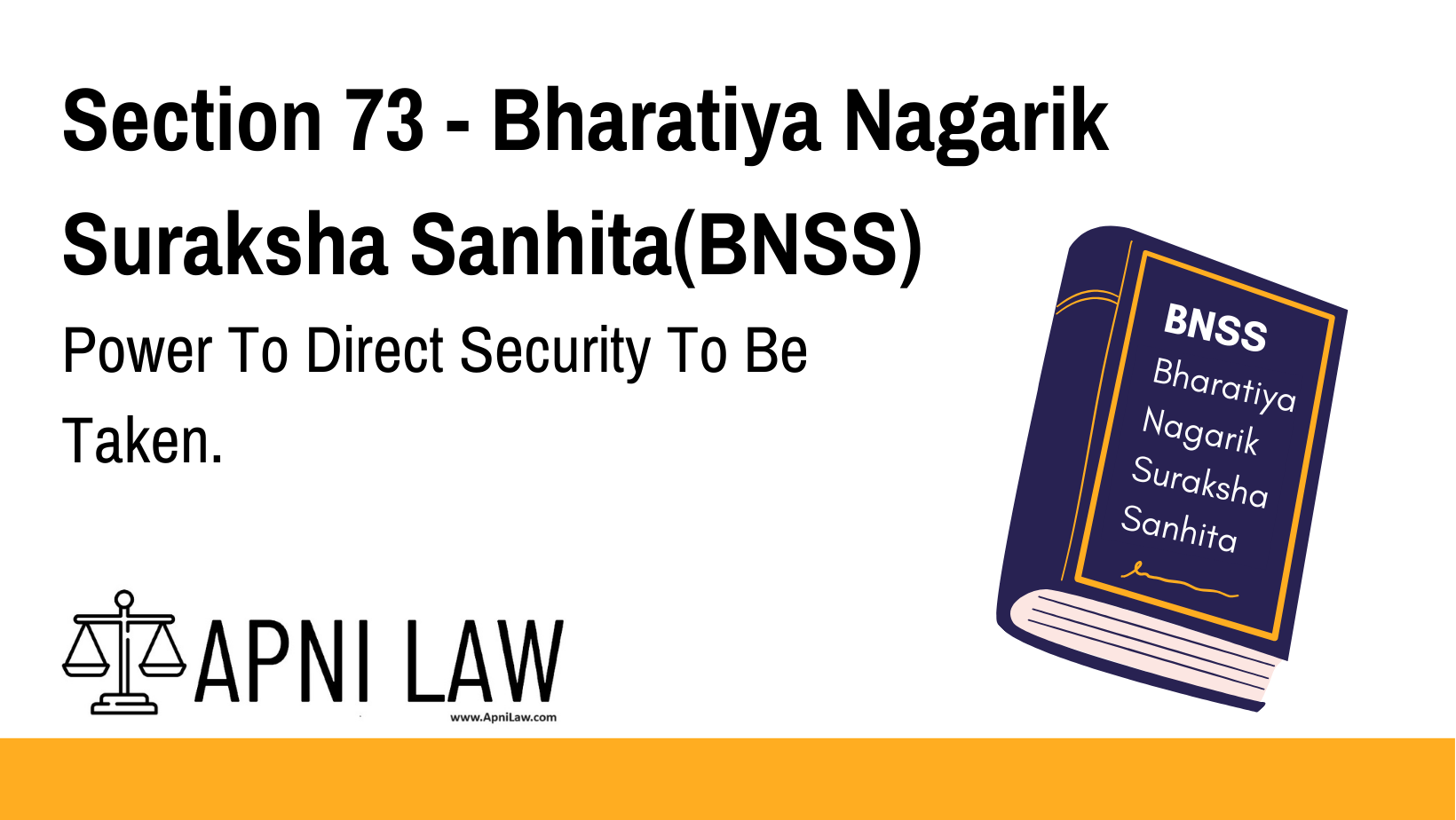Code: Section 73 BNSS
(1) Any Court issuing a warrant for the arrest of any person may in its discretion
direct by endorsement on the warrant that, if such person executes a bail bond with sufficient
sureties for his attendance before the Court at a specified time and thereafter until otherwise
directed by the Court, the officer to whom the warrant is directed shall take such security
and shall release such person from custody.
(2) The endorsement shall state—
(a) the number of sureties;
(b) the amount in which they and the person for whose arrest the warrant is
issued, are to be respectively bound;
(c) the time at which he is to attend before the Court.
(3) Whenever security is taken under this section, the officer to whom the warrant is
directed shall forward the bond to the Court.
Explanation of Section 73 BNSS
Section 73 of the Bharatiya Nagarik Suraksha Sanhita (BNSS), 2023, provides that a Court issuing an arrest warrant can allow bail endorsement on the warrant itself. This enables the accused to secure bail without first being taken into custody, ensuring a balance between law enforcement and individual rights.
Key Aspects of Section 73 BNSS
-
Discretion of the Court
-
The Court can endorse on the warrant that the accused may be released on bail upon providing the required sureties.
-
-
Conditions for Bail Endorsement
-
The endorsement must specify:
-
Number of sureties required.
-
Amount in which both the accused and sureties must be bound.
-
Time and date when the accused must appear in Court.
-
-
-
Role of the Arresting Officer
-
If the warrant contains a bail endorsement, the police officer or person executing the warrant can take the security and release the accused immediately.
-
The bail bond must then be forwarded to the Court.
-
Illustration of Section 73 BNSS
Example 1: Bail Granted at the Time of Arrest
A Magistrate issues an arrest warrant against an individual accused of a financial fraud case. However, since the offense is not serious, the Magistrate endorses the warrant with a bail condition allowing the accused to furnish a bail bond.
The police officer arrests the individual.
The accused executes a bail bond with two sureties of ₹50,000 each.
The officer releases the accused and forwards the bond to the Court.
Example 2: No Bail Endorsement – Custody Required
A Court issues an arrest warrant for a murder suspect under Section 103 BNSS. Since the offense is serious and non-bailable, the warrant is issued without bail endorsement.
The police officer must take the accused into custody and produce them before the Court.
The accused cannot secure bail without appearing before the Judge.
Common Questions and Answers on Section 73 BNSS
1. What is the purpose of endorsing bail on a warrant?
✅ It allows the accused to avoid unnecessary detention by furnishing a bail bond immediately upon arrest instead of being taken into custody first.
2. Who decides whether bail can be endorsed on a warrant?
✅ The Court issuing the warrant has complete discretion to decide whether bail should be permitted at the time of execution.
3. What information must be included in a bail endorsement?
✅ The endorsement must specify:
-
Number of sureties required.
-
Amount of the bond for both the accused and sureties.
-
Time and date of appearance before the Court.
4. Can all warrants include a bail endorsement?
✅ No, only bailable offenses may have a bail endorsement. In serious or non-bailable offenses, the Court may issue a warrant without a bail endorsement, requiring the accused to be presented before a Magistrate.
5. What happens if the accused fails to appear in Court after securing bail?
✅ If the accused does not appear on the specified date, the bail bond is forfeited, and the Court may issue a fresh arrest warrant.
Conclusion
Section 73 BNSS provides judicial flexibility by allowing Courts to endorse bail conditions directly on arrest warrants. This reduces unnecessary detention, ensures fair treatment of accused persons, and expedites legal proceedings. However, the decision to allow bail endorsement remains at the Court’s discretion.
For expert legal insights, visit ApniLaw today!








